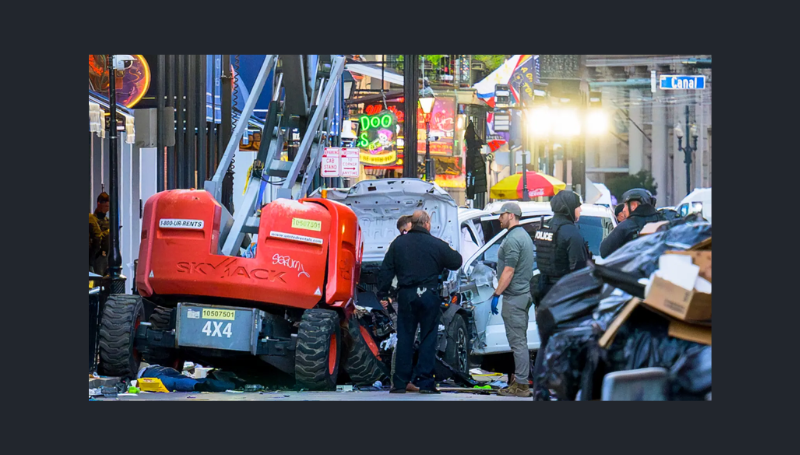Tom Rogan
Unherd, Jan. 2, 2025
“… the likes of Jabbar are not moved to run down innocents simply because they have had a bad day. They need a greater inspiration and cause.”
Early on Wednesday morning Shamsud-Din Jabbar, a 42-year-old US citizen, drove a truck into revellers celebrating New Year’s Eve on New Orleans’s famed Bourbon Street. At least 15 people were killed and dozens more wounded. Law enforcement found an Isis flag in Jabbar’s vehicle, and President Joe Biden has stated that the perpetrator’s social media posts suggest he was inspired by the terrorist group. Jabbar, who was killed in a shootout with police, claimed on his now-removed LinkedIn account that he was formerly in the US military.
The New Orleans attack underlines the continuing appeal of Isis to certain malcontents within society. The Isis-K syndicate based out of Afghanistan remains the primary concern when considering directed attacks of the kind seen in Moscow last March. But terrorists who seek purpose in Isis ideology and then carry out attacks in its name remain overwhelmingly the main concern for Western security services. There are tentative indications that Jabbar may have operated as part of a broader cell, but his attack demonstrates the persistent influence of Isis, even though the group’s leader Abu Bakr al-Baghdadi is long dead and his Syria-Iraq caliphate near entirely deconstructed.
Rooted in a warped interpretation of already hardline Sunni Salafist ideology, Isis makes al-Qaeda look moderate in comparison. The beheading, immolation and drowning videos of a decade ago — the highpoint of the group’s theatre of death — were not solely designed to cause fear. Instead, they were geared towards showing malcontents such as Jabbar that there is purity in the absolute and unashamed deconstruction of others. This idea is central to the Isis vein of Salafi-jihadist thought. How else do you persuade someone to drive a car into strangers? …SOURCE


